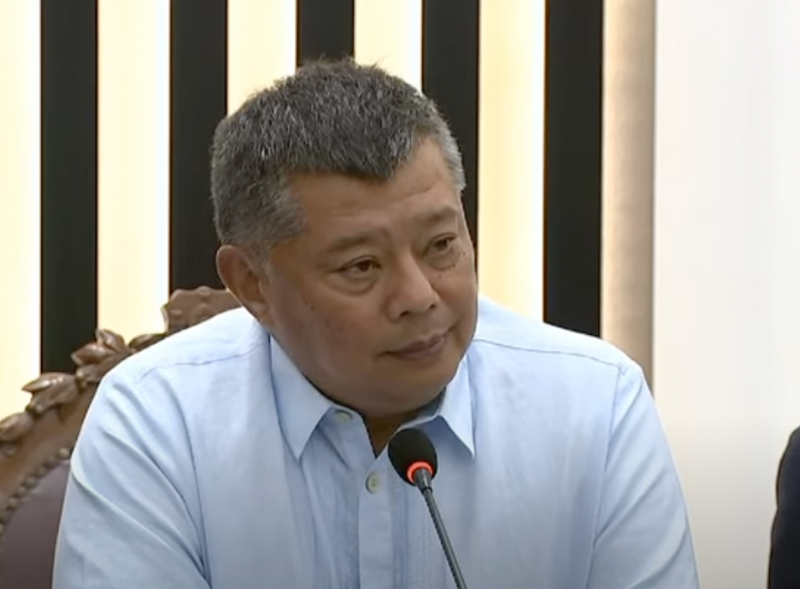Alumni
Boying Remulla: Serving Justice and Governance in Real Terms

In the birthplace of patriots that is Cavite, Atty. Jesus Crispin “Boying” Catibayan Remulla ‘79 was born into public life. His father, Juanito, was governor of the province. His siblings and sons have likewise held various elective posts. Against this backdrop, a lawyer, lawmaker, and now Secretary of Justice, has taken on roles shaped by both circumstance and choice, navigating governance with a style distinctly his own.
In August 2025, the University of the Philippines Alumni Association will confer upon him the Lifetime Distinguished Achievement Award. The award does not merely celebrate a résumé—it affirms a governing philosophy. For if there is a thesis to Boying’s public life, it is this: that justice and governance are not separate vocations, and he has dedicated his life and career upholding this principle.
Formed by the best traditions of Filipino education—La Salle in his youth, Ateneo in his adolescence, and UP Diliman in the season of discipline—Boying graduated AB Political Science 1983 and from the UP College of Law in 1987, and ranked in the top 20 of the bar examinations. His early years in law and public service saw him in the halls of Cavite’s provincial capitol as a board member, in Malacañang as one of the Chief Executive’s most trusted advisers during the Estrada administration, and later, as chief of staff to Senator Luisa “Loi” Estrada. But it was in 2004, upon his election to the House of Representatives, that his legislative legacy began in earnest.
There, he co-authored the reapportionment of Cavite—from three legislative districts to seven, granting political voice to a fast-rising, long-restless populace. There are now eight districts in the historic and progressive province. In time, he would rise to become Deputy Speaker, regarded in awe by his peers in the House.
Boying would move on to take the helm of Cavite and serve as its governor, just as his father had done. He would earn a reputation not only for governance but for management. Under his term, the Cavite provincial government achieved ISO 9001:2015 recertification, a globally recognized standard for quality management systems, covering 29 government offices.
He prioritized institutional streamlining in the delivery of services, reducing bureaucratic bottlenecks and reinforcing accountability in the local government. As chairman of the Regional Peace and Order Council of Southern Tagalog, he also signed a landmark agreement with the Humanitarian Leadership Academy and the Adventist Development and Relief Agency to improve the province’s earthquake preparedness, especially in areas along the West Valley Fault Line, a potential epicenter of “The Big One.”
In his present role as Secretary of Justice under President Ferdinand Marcos Jr., Remulla’s imprint has become most formidable.
Upon his appointment in 2022, he set out to serve all six years with resolve, and to confront the enemies of justice—corruption, impunity, delay, and inefficiency—with neither apology nor hesitation.
Under his hand, reforms have surged:
- The Prosecution Integrity Board was established to enforce internal discipline and integrity.
- Mass reviews of prison records were launched, decongesting the carceral system.
- A new maximum-security facility in Mindoro is now underway to replace the decaying New Bilibid Prison.
- Prosecutors and police were ordered to collaborate from the earliest stages of investigation—“streamlining for success,” he called it.
Boying pursued digitalization, expanded access to legal aid through the DOJ Action Center, and pushed the department toward transparency and responsiveness, especially for society’s most vulnerable—the poor, the elderly, the disabled, and those preyed upon in the digital domain.
He also stood firm on the world stage. At the United Nations Universal Periodic Review, he faced scrutiny with candor, rejecting foreign prescriptions divorced from the Filipino context. He declined to support the return to the International Criminal Court, believing that sovereignty entails self-sufficiency in justice. He resisted legislative trends toward divorce, abortion, and same-sex marriage—not out of dogma, but from a conviction that law must reflect culture, not dictate it.
To his critics, he is unyielding; to his supporters, principled. To himself, he is simply a servant of justice, which in his hands was not an abstraction. Like his style of governance, it is real, felt, and served.
About the Author
June Edgar Asok 2024
June Edgar Asok 2024 is a fourth-year student at the UP College of Law. He's a member of the Order of the Purple Feather, the UP Law Debate and Moot Court Union, and the UP National Union of People's Lawyers. June has a degree in Physics from the Mindanao State University-Iligan Institute of Technology.


